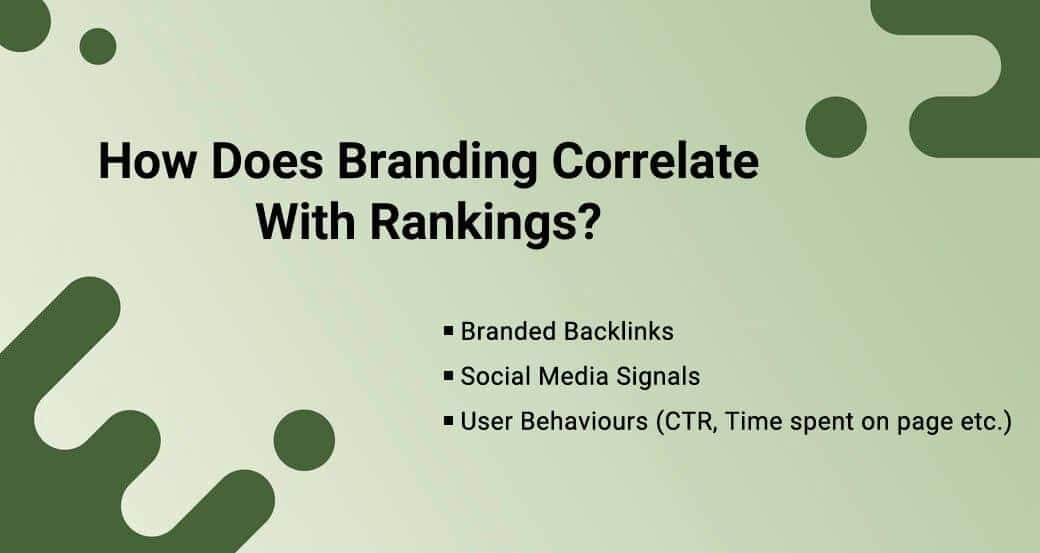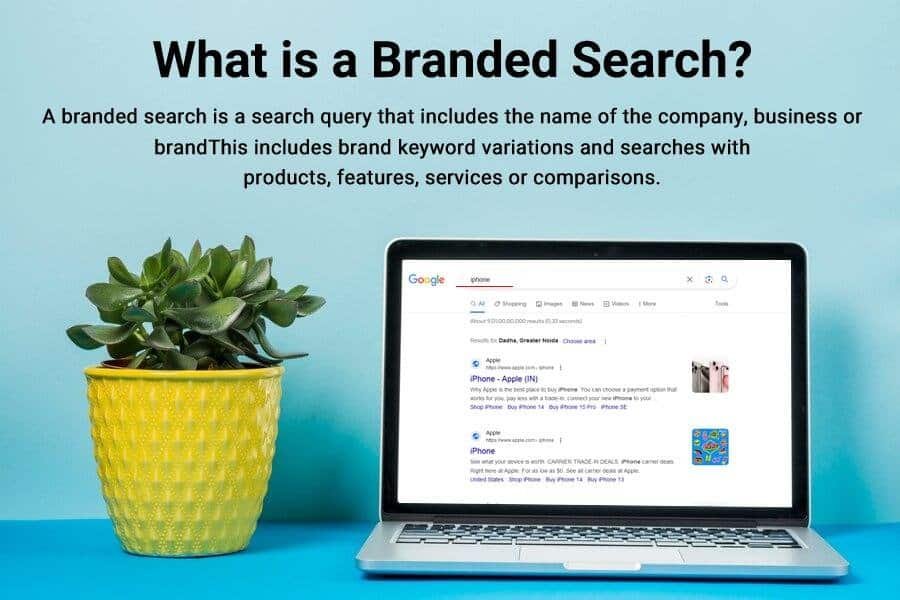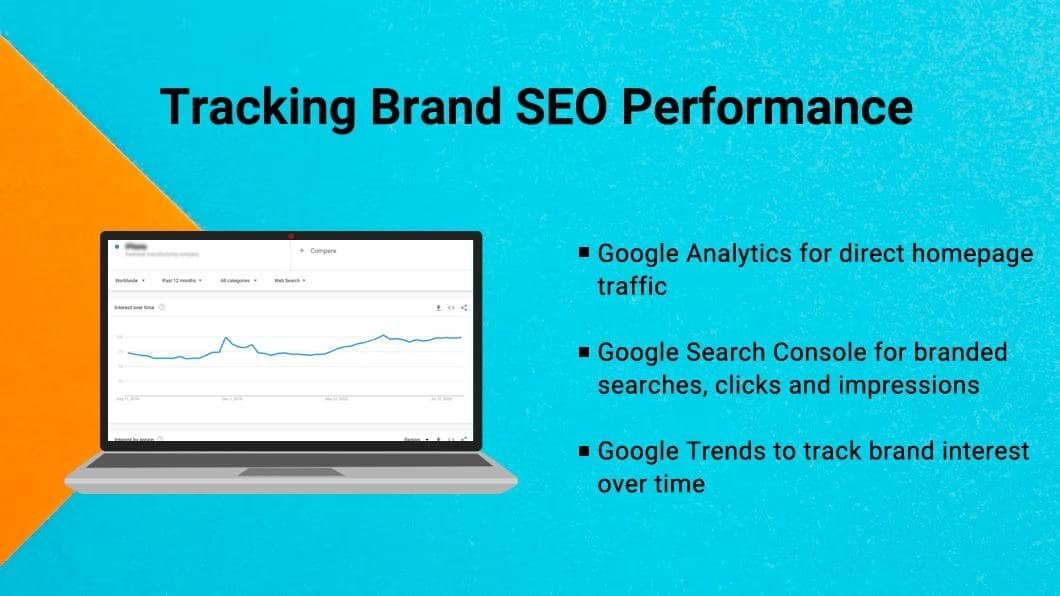SEO Branding, also known as Brand SEO, is an extremely effective method for increasing brand awareness and attracting potential customers, all in one convenient package. Business owners aiming to utilize SEO to enhance their brand’s visibility must recognize the critical role it plays in brand recognition within the realm of SEO.
A significant aspect of SEO involves establishing and promoting a brand. Without utilizing SEO, a business may find it challenging to expand brand awareness. Whether you embrace it or not, the performance and recognition of your brand are pivotal to SEO. In this post, we will elucidate the close relationship between branding and SEO and provide insights into measuring and leveraging SEO branding.
What Does SEO Mean?
Search Engine Optimization (SEO) is the practice of enhancing a website to increase its visibility and ranking on search engines such as Google. This encompasses improving content, site structure, and user-friendliness. SEO aims to make your website more prominently featured in search engine results, increasing the likelihood of users clicking on your website over others.
SEO employs various techniques, including keyword optimization, content enhancement, technical improvements, and link building. These strategies are designed to elevate your website’s position in search results organically, without the need for paid advertising. With SEO, your website will appear in search results when people search for terms related to your offerings.
Selecting the appropriate SEO packages is crucial for building your brand through search engine optimization. A well-crafted package should offer comprehensive strategies, from keyword research to content creation, that align with your brand’s goals and target audience for maximum impact and visibility.
What Does Branding Mean?
Branding is the key to outperforming competitors with higher rankings and more robust SEO strategies. It enables you to achieve a higher click-through rate on the Search Engine Results Page (SERP) and generate greater revenue than competitors ranked higher in SERPs.
In essence, branding involves creating a compelling and lasting impression of your company and its products in the minds of your customers. This is a proven and guaranteed method for attracting new customers and fostering loyalty among existing ones. Continue reading to explore how SEO and branding synergize and how enhancing one can positively impact the other.
Also Read: MUST HAVE QUALITIES IN A SEO COMPANY!
SEO and Branding Are Closely Connected

You may be pondering, “What exactly is SEO Branding?” Think about the brands you admire and how they outperform smaller, lesser-known competitors in their category. Well-known brands that people trust typically rank high on search engine result pages. SEO branding aims to help businesses build and foster recognition and trust with both search engines and users.
SEO branding isn’t just about link building; it focuses on establishing relevance, authority, and trust in search engine results. To enhance your SEO branding efforts, focus on obtaining more links that mention your brand, scrutinize search data related to your brand, and leverage this information to make your brand more visible and attractive in search results.
SEO and branding are intertwined, playing crucial roles in the development of a successful business. For SEO professionals, this integration means incorporating brand performance metrics into regular optimization strategies. Alongside the enhancement of your keywords, H1 tags, title tags, and content consider the impact of your brand on SEO across all touchpoints.
While it’s unclear if brand popularity directly influences Google rankings, it’s evident that there’s a correlation between brand perception, user engagement, and search engine rankings. Implementing SEO branding can build trust with your target audience, offer insights into their preferences, and make your brand memorable, increasing your customer base over the long term.
How Branding Can Help Get More Clicks?
Branding is an invaluable tool for driving more clicks on your online content. An influential and memorable brand builds trust and fosters customer loyalty. Utilizing SEO branding is an effective way to achieve this, enabling potential customers to find you online effortlessly and encouraging them to visit your site.
Moreover, a well-thought-out SEO branding strategy sets you apart from your competitors and increases the likelihood that your content will be shared and viewed by a larger audience. For an online business, a robust brand presence is vital, attracting more visitors to your site.
Here’s an open secret: Google has a bias towards bigger brands. Regardless of how excellent your product is or how compelling your content may be, big names in your industry will likely outrank you and even appear in knowledge panels and featured snippets.
Google may seem to penalize these brands temporarily for any missteps, but they’re quickly restored to their prior standing. Unfair as it may seem, Google’s primary objective is to provide its users with the most trustworthy and high-quality results. Hence, larger brands often receive more attention, higher click-through rates, and a greater likelihood of being clicked, despite smaller businesses possibly needing it more.
In summary, having a strong brand presence isn’t just an option—it’s a necessity for any business aiming for long-term success in today’s digital landscape.
Also Read: IMPORTANCE OF SUBMITTING THE SITES TO DIRECTORIES!
How to Use SEO to Promote Your Brand?
In today’s digital landscape, particularly in 2024, SEO is integral to brand building. Crafting links, optimizing content based on popular search terms, and identifying keywords that resonate with your target audience all contribute to shaping your brand’s image. Effective SEO can significantly increase traffic to your website.
Creating a solid brand reputation begins with driving customer traffic to your site, and SEO provides that initial push. Your homepage should feature engaging content that compels visitors to click on the “Subscribe Now” button. This also hinges on the effective use of relevant keywords to capture your audience’s attention.
SEO can enhance a brand’s image by increasing its online visibility and driving more traffic to the website, thereby creating a positive impression. If your brand already enjoys a good reputation, that reputation can reciprocally bolster your SEO efforts. Search engines often favor websites with positive customer feedback, such as favorable reviews and high ratings.
Once someone subscribes to your email list, they enter your sales funnel. Your role then becomes one of persuading them to make a purchase and ensuring their satisfaction thereafter. Achieving customer satisfaction is only part of your job—the next step is continual lead generation. Consistent customer satisfaction lays the foundation for a successful brand.
7 SEO Strategies to Increase Brand Awareness
Branding is a time-intensive endeavor, but there are several SEO techniques to accelerate the process. Below are some effective strategies:
-
Do Link Building
Establishing backlinks from other websites to your own is a potent way to increase your site’s visibility and enhance its search engine rankings. These backlinks act as bridges between your website and others, and they can be established through guest blogging, link exchanges, social media sharing, and more. They serve as indicators to search engines that your content is relevant and of high quality.
Backlinks play a critical role in SEO improvement, resulting in increased website visits and, consequently, heightened brand awareness. As you work to enhance your SEO, it’s crucial to also focus on content marketing and social media engagement alongside link-building efforts.
-
Improve Your Brand Through Content Marketing Strategies
Integrating smart SEO with high-quality content can result in a compelling branding strategy. Start by conducting in-depth research. Utilize analytics tools to discover what your audience wants, needs, and is actively searching for online.
Armed with this information, optimize your on-page SEO. Place your essential keywords strategically in titles, meta descriptions, and subheadings. Strive to secure a featured snippet on search engine results pages. By excelling in content creation, you’ll start capturing attention and building brand recognition.
-
Find the Correct Audience With Long-tail Keywords
Long-tail keywords are phrases that consist of more than just a single word, and they can be particularly effective for targeting specific audiences. For instance, if your company sells furniture and you only focus on the keyword “furniture,” you may not effectively reach the audience you’re aiming for.
A long-tail keyword like “furniture Christmas sale,” however, allows you to target a more specific group of potential customers. Long-tail keywords are generally more detailed than single-word keywords, making it easier for you to attract attention from your desired audience.
-
Look for Niche Audience
Focusing on a specific demographic significantly improves your chances of converting prospects into actual customers. Social media platforms are excellent tools for identifying and engaging with people interested in your products or services. By conducting smart keyword research, you can learn about what your target audience likes and what they’re searching for online. Once you’ve gathered this data, you can tailor your approach to match their interests, using specific keywords to lure them to your website.
If you specialize in a particular product, it will naturally attract more attention. Loyal customers will then become ambassadors for your brand, helping to broaden your reach and increase brand awareness.
-
Create a Good Reputation for Your Brand
Implementing a strategic SEO branding plan allows businesses to connect with their target audiences and establish themselves as reliable information sources. Both branding and SEO play pivotal roles in shaping how a business is perceived by its target customers. They not only help in creating the business’s identity but also in defining how the brand wants to be viewed by its audience. By aligning your branding and SEO strategies, you can effectively build a positive reputation and a loyal customer base.
-
Leverage Local SEO
Another effective way to boost brand awareness is through local SEO. For example, when you search for general terms like “restaurants” on Google, you’ve likely noticed that the search engine often displays a list of nearby options. This is because Google’s local search algorithm considers a “proximity factor,” which means your location influences the search results, even if you don’t explicitly specify a city or use the term “near me.”
-
Make More Top of the Funnel Content
TOFU, or top of the funnel content, aims to raise awareness about your brand, product, or service. Think of it as a megaphone for broadcasting valuable information to prospective customers, helping them make informed decisions.
TOFU content serves as an entry point for new customers who may not yet be familiar with your brand. By producing quality TOFU content and employing effective SEO tactics, you can ensure your initial outreach resonates with the right audience, thereby establishing a strong online presence for your brand.
Link Building Equals Brand Building
Upon reflection, the link between link building and brand building becomes evident. Brand building is fundamentally about increasing brand recognition and trust among both users and search engines. By incorporating relevant links into your website, you signal to search engines that your brand is trustworthy, credible, and relevant to the subject matter. A robust portfolio of backlinks signifies that a brand is well-established and respected in its field.
If you’re unfamiliar with the concept of sustainable link building, consider it a method of gaining acknowledgement from other reputable websites without violating Google’s guidelines. Gone are the days when link building solely meant accumulating numerous keyword-rich links. Today, sustainable link building focuses on earning genuine, non-paid links from reputable websites that are relevant to your content and your brand’s offerings.
In 2024, the most ethically and environmentally sound links are those originating from pertinent websites. These sites should use anchor text to link back to your website, thereby endorsing your content, services, products, or features. In short, contemporary link building is intrinsically linked to forging a robust brand image.
Do Brands Have Higher Priority in Google SERPs?

The question of whether brand awareness influences search engine rankings has long been a topic of debate. Google has specific ranking factors that dictate the order in which websites appear in search results. Although Google has not explicitly stated that brand equity affects these rankings, it’s likely that many signals used by Google are related to brand characteristics, either directly or indirectly.
In essence, Google tends to favor websites associated with trusted brands that offer reliable, high-quality content, thereby enhancing the user experience. This begs the question: what is the relationship between brand awareness and Google rankings?
-
Backlinks
Backlinks play a significant role in brand building and establishing authority in search engine rankings. Quality, legitimate, and sustainable backlinks often correlate with a company’s brand reputation. For Google’s ranking algorithm, links are considered one of the most critical factors in determining a website’s placement in search results.
-
Social Signals
The term “social signals” refers to the likes, shares, and visibility a website gains on social media platforms. Marketers often debate whether social signals directly influence Google’s ranking algorithm. While many believe that social engagement impacts search engine rankings, Google has stated that social signals do not directly affect website ranking. Regardless of Google’s stance, social signals do contribute to brand awareness and customer engagement, which are important for a brand’s overall online presence.
-
User Behavior
Google aims to continually enhance the user experience in search. To achieve this, it examines various user behavior metrics to gauge whether users find what they’re looking for. This includes analyzing how users interact with search results to refine their ranking algorithm.
Brand awareness can be closely tied to how prominently a website appears in Google’s search results. If a particular brand or website is frequently searched for, Google takes note and may adjust the rankings accordingly.
For instance, if multiple users consistently search for a specific brand’s products, Google may use this data to elevate the brand’s position in search results. The same principle applies to click-through rates; a high click-through rate can signal to Google that your brand warrants a higher ranking compared to your competitors.
Even if we assume that Google doesn’t prioritize popular brands in its algorithm, brand awareness remains crucial for online recognition and trust. This is because brand visibility significantly influences consumer choices. Given that Google aims to deliver the best possible user experience, it stands to reason that if your brand attracts interest, Google will also find it interesting.
SEO and Brand Recognition
Do you understand the concept of brand SEO? It involves optimizing a website and company name to boost brand popularity and recognition. Studies indicate that 70% of people are more inclined to click on search results from brands they recognize.
Interestingly, people will often opt for search results that rank lower on the page if they are from a familiar brand, over a top-ranking website they’ve never heard of. Over the years, it has become increasingly crucial for brands to be well-known to encourage clicks on their websites.
Consider this analogy: When shopping for cola at a grocery store, would you go for the store’s generic brand or opt for a name brand you recognize? Most people tend to choose brands they know and trust, sticking to their familiar favorites.
This principle extends to search engine results as well. Whether it’s a product or service, consumers are generally more attracted to brands they recognize. Hence, brand recognition plays a vital role in making a website trustworthy, influential, and successful.
Branded Searches and Conversions

The term “brand searches” refers to queries that include your brand name or variations of it. For instance, when someone searches for “Puma shoes,” they’re specifically looking for products from Puma, the sportswear brand.
An increase in brand-specific searches can significantly benefit a business. Firstly, brand recognition is crucial; if people are searching for your company by name, it indicates pre-existing awareness and interest.
Search engines take note of this, amplifying your industry credibility and relevance. Establishing such a connection with consumers not only aids in brand success but also enhances its discoverability in online searches. Once people start searching explicitly for your brand, customer acquisition and sales are likely to increase.
Branded conversions are particularly valuable. A search query that specifically names your brand signifies a higher likelihood of purchase. In other words, if people are explicitly looking for your brand, they’re closer to the buying stage than those who discover your products through a generic search.
The most lucrative searches are those involving specific branded keywords that exhibit a strong intent to purchase. For example, a high-intent brand search isn’t just “Puma” or “shoes;” it’s “Puma running shoes.” Such queries indicate that consumers know precisely what they want and are ready to make a purchase from that particular brand.
Measuring and Keeping Track of Brand Activity

To gauge the effectiveness of your brand and its level of public interest, it’s essential to actively measure and track various performance indicators. Contrary to popular belief, there are effective ways to evaluate your brand’s health and leverage this data to enhance brand engagement and recognition.
-
Direct Traffic Received by Homepage
Google Analytics is an invaluable tool for tracking the number of users who directly visit your homepage. This metric provides insights into users who enter your website URL directly into their address bar, indicating they are already familiar with your brand and interested in what you offer.
-
Search Console Brand Searches
Google Search Console offers complimentary insights into how users discover your website via search engines like Google. The platform provides data on impressions, clicks, and search queries related to your brand. Moreover, you can monitor these metrics over time, allowing you to assess whether your brand name or variations of it are effectively driving traffic to your site.
-
Google Trends
Google Trends is a free tool that can be used to monitor the frequency of searches related to your brand over an extended period. By adding your brand name to Google Trends, you can identify periods when public interest in your brand peaked. However, it’s worth noting that Google Trends is generally more effective for larger, more established brands.
-
Third-Party Tools
Numerous third-party tools are available to track and measure brand performance. These tools can tally the number of times your brand is mentioned outside your own channels, such as in blogs, reviews, news stories, and more. Platforms like Awario, Hootsuite, and Social Mention offer insights into brand engagement, current trends, search behavior, and click-through rates.
Common Misconceptions About SEO Branding
Often, SEO professionals and marketers think they should distinguish the performance of their brand from the traffic and sales generated by organic, non-branded searches. There’s a prevailing belief that SEO and branding operate in isolation within a business growth strategy. While it’s true that they can be interconnected, not enough marketers are giving due attention to the synergy between SEO and branding.
Many become fixated on specific keywords, neglecting the broader context of SEO. They pour all their energy into ranking high for terms that aren’t even tied to any specific brand. Our SEO team recently tackled a project where we identified the most crucial keywords for brand-centric search engine optimization. While these popular, non-branded keywords are certainly valuable, they shouldn’t be the sole focus.
The crux is this: SEO aims to foster business growth by ensuring a brand’s visibility in organic search results. A significant aspect of this growth is monitoring and adapting to the shifts in traffic coming to our website via search engines. Brand interest strongly influences how prominently a brand appears in search results. Therefore, building brand awareness is often inseparable from effective SEO strategies.
Final Thoughts
In the past, SEO strategies often involved stuffing landing pages with a brand’s name to boost awareness. However, this approach is less effective today. Now, the focus should be on comprehensive campaigns that elevate brand perception and awareness. Rather than treating brand performance as a separate entity from online marketing, integrate your brand’s allure into your overall strategy.
The crux of this article is simple: For SEO professionals, a strong brand is an invaluable asset. Robust brand performance not only aids in making your website search-friendly but also offers a plethora of benefits for your or your client’s business growth. Therefore, a holistic approach to SEO, where brand engagement is central, is not just important—it’s essential.
FAQs
How is SEO branding different from regular branding?
SEO branding diverges from traditional branding in that it emphasizes improving your website’s visibility in search engine results and shaping how your business is perceived online. Rather than solely focusing on offline or generic online promotion, SEO branding aims to make your website more attractive to both search engines and potential customers.
How does SEO branding make my business grow?
SEO branding can enhance your website’s visibility in search results, driving more traffic to your site. It also works to establish your brand as a trusted leader in your industry, earning customer trust and positively influencing your online reputation.
What are some important strategies in SEO branding?
SEO branding strategies include optimizing website content with relevant keywords, creating shareable and valuable content, securing high-quality backlinks to build reputation, and engaging with your audience on social media platforms.
How much time does it take to start seeing outcomes from SEO branding work?
The timeline for seeing tangible results from SEO branding varies. Factors influencing this include the level of competition, your current online presence, and the strategies implemented. Typically, you may begin to notice significant improvements within a few months.








